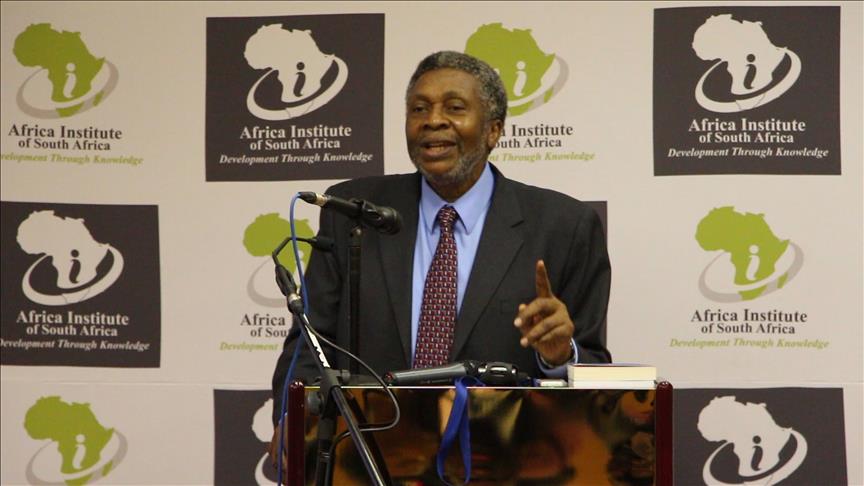US, UK have no moral authority to intervene in any country: American author
American author and university professor Horace Campbell believes the US and Britain have lost moral authority to intervene in any conflict in the world because recent history shows they intervene to exploit natural resources

PRETORIA – American author and university professor Horace Campbell believes the US and Britain have lost moral authority to intervene in any conflict in the world because recent history shows they intervene to exploit natural resources.
"If the world is going to have any military interventions in any country then it must come from countries that have no history or institutions of exploitation," professor Campbell, the author of a new book titled: Global NATO and the Catastrophic Failure in Libya, told Anadolu Agency.
Campbell, who teaches at the Syracuse University, a private research university located in Syracuse, New York, said the world should be careful now that America and its allies were contemplating a military intervention in Syria.
The US, Britain and other western allies are mulling a military strike against Syrian President Bashar al-Assad over the alleged use of chemical weapons by his regime.
A UN investigation team in Syria is expected to release a report on a chemical attack early next week after leaving the country.
US President Barak Obama said he has not yet taken a decision to strike Syria, but insisted the use of chemical weapons by the Assad regime must have international consequences.
The British government has announced it could intervene in Syria without a UN mandate on "humanitarian basis."
- Failed Libya
Professor Campbell, currently visiting South Africa, claimed NATO struck Libya under the pretext of helping to protect civilians but instead stole their natural resources, and turned the country into a base for western destabilization of North Africa.
"No imperial power ever says they are intervening in any country to exploit its natural resource, but they come under the pretext of helping you to find a solution to a conflict in your country," he told AA.
He criticized African countries for having failed to unite during the NATO intervention in Libya.
"The UN Security Council resolution 1973 which authorized NATO to invade Libya was not a mandate for regime change in Libya," argued the scholar.
"The resolution was stretched beyond the responsibility to protect Libyans by NATO so that they could exploit Libya’s natural resources," he claimed.
Professor Campbell said the NATO intervention in Libya had negative impacts on the lives of millions of Libyans.
"The Libyan society is now destabilized with more than 1,700 militias ravaging the community as a result of the intervention."
He argued that prior to the NATO's intervention Libyans had one of the highest standards of living in Africa.
"Personally I never liked Gaddafi and I believe many didn’t like him too, but it was not the business of the west to institute a regime change in Libya."
- Egypt
Commenting on the current situation in Egypt, Professor Campbell expected the crisis would soon come to an end and the military would be sent back to its barracks.
"The Egyptian military will soon leave the political scene, because the Egyptian people have a very proud history of the military and they will not accept from within their ranks that the military should continue to kill people like it is doing," he said.
The Egyptian army ousted elected President Mohamed Morsi, the country's first democratically elected president, on July 3 following mass protests against him.
It suspended the constitution and installed the head of the constitutional court as interim president.
Morsi supporters have since been holding daily mass protests to demand his reinstatement.
The American academic accused the United Nations Security Council of having double standards when dealing with some countries, citing Egypt as example.
"On August 14, Egyptian security forces massacred nearly 1,000 people, why didn’t the UNSC intervene to protect civilians?" he said referring to the security forces' violent dispersal of two major protest camps of Morsi supporters.
"Yet the same global organization passed a resolution to invade Libya where a lesser number of people had been killed," he said.
englishnews@aa.com.tr


